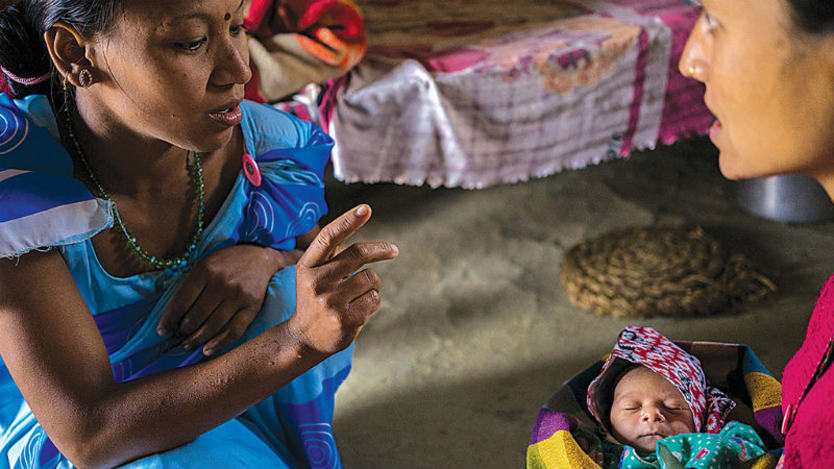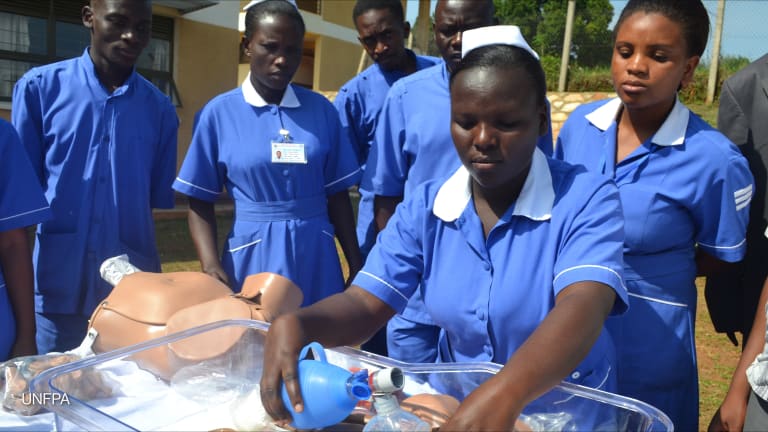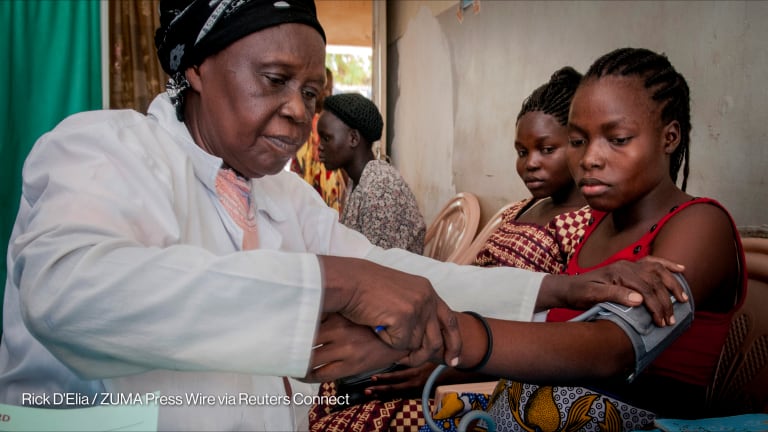
What if we knew there was a proven intervention that can prevent millions of maternal, infant, and child deaths? One that could make a dramatic contribution toward ensuring universal access to sexual and reproductive health and rights by 2030, as laid out in the United Nations’ Sustainable Development Goals?
In fact, such an intervention exists. It entails ensuring that mothers who have just given birth are offered and have access to a full range of contraceptive methods before even leaving the facilities where they delivered.
We know that the postpartum period is the time when women most wish to avoid pregnancy — but are not using any form of contraception. With 93 percent of postpartum women hoping to space or limit their next birth, this is the period of highest unmet need for contraception in a woman’s entire life cycle.
This window offers a critical opportunity to counsel women about their options and ensure they leave the facility with a modern method that is right for them. By extension, this same intervention could play a vital role in unlocking all the most pressing development priorities, such as increased access to education, economic empowerment, and food security.
The implications for maternal and child health are astounding. If the provision of modern contraception were combined with care for all pregnant women and their newborns — including HIV-related care — maternal deaths would drop by two-thirds, from 290,000 to 96,000 per year. Deaths of children under the age of 5 could be reduced by 25 percent if women were given the ability to time and space their pregnancies adequately.
The World Health Organization explicitly recognizes the transformative potential of this intervention; in 2015, this body made significant revisions to its widely used medical eligibility criteria that expanded the range of contraceptive methods approved for use by postpartum women.
This move, coupled with a growing body of evidence, has paved the way for widespread acceptance, advocacy, and action by the family planning community as a whole. At the global and national levels, advocates, implementers, and policymakers have been working to elevate the critical need and tremendous opportunity they see to accelerate access to postpartum family planning, or PPFP.
This movement has galvanized high-level advocacy to influence national budgets and policymaking and has spurred targeted new donor investments.
We are also witnessing an unprecedented country-level commitment to expanding PPFP, including specific language written into countries’ national strategies and global commitments. From a nationwide rollout of postpartum intrauterine devices in India to teaching PPFP in medical and nursing schools in Burkina Faso, it is evident that countries’ commitment to expanding PPFP access is on the rise.
Yet, as this momentum has taken hold and we glean more evidence about where the gaps and opportunities lie, a glaring discrepancy has emerged. While both the public and private sectors have struggled somewhat to adhere to WHO’s guidelines, the private sector has lagged notably behind in implementing PPFP.
This is remarkable when you consider that a substantial proportion of women are delivering babies in private sector facilities in low- and middle-income countries. For example, nearly 75 percent of women in Indonesia who deliver at a health facility do so at a privately owned facility as opposed to a public health center. In settings where the private sector plays a major role in providing antenatal and delivery care, privately owned health centers are uniquely positioned to accelerate access to PPFP.
The private sector remains the untapped venue for reaching postpartum women with family planning. Reasons for this disconnect are varied, complex, and poorly understood. Some issues are systemic, such as insurance reimbursement schemes, and some have to do with poor training, among other variables.
To better understand these barriers, the Bill & Melinda Gates Foundation and Merck for Mothers are partnering with Jhpiego to explore the systemic and practical factors that may impede the private sector from providing PPFP counseling and services.
The project, called Postpregnancy Family Planning Choices, is an implementation research study that aims to improve access to facility-based family planning for women prior to discharge, while generating evidence and recommendations for both the public and private sectors.
This study focuses on two countries, Kenya and Indonesia, whose contexts — vastly different in many ways — can yield illuminating and diverse insights from two continents.
In Kenya, for example, we have determined through surveys that private sector providers perceive a low demand for PPFP among clients due to cultural or religious beliefs, and that a lack of awareness also plays a role. It is clear that providers themselves also need education; many said they were unaware of the WHO’s guidelines recommending PPFP, while also expressing that they are “left out” of critical training opportunities.
In Indonesia, key barriers include a lack of coordination around PPFP capacity building and delivery, and a universal health coverage scheme in which PPFP is considered part of the labor and delivery package, and is not reimbursed separately at the hospital level. Because of this, providers view it as “extra work.”
We know that PPFP works, and we know that the private sector is a vital partner in making it much more widely available. Addressing the barriers inhibiting its implementation and investing in the vast potential of this approach is a key piece of the puzzle to improve the health and well-being of millions of women and girls.
Imagine: If we could reach every single pregnant woman who delivers at a private facility in Indonesia and Kenya alone, millions of mothers — as many as 2.5 million women based on the most recent surveys from each country — could be offered family planning, along with the possibility of a healthier and more promising future for her and her family.
If we could then expand this to all the other countries in the world, how many more lives can be saved?
Devex, with financial support from our partner MSD for Mothers, is exploring how the private sector is driving innovations in global health. Visit the Focus on: Future of Health Partnerships page for more.









